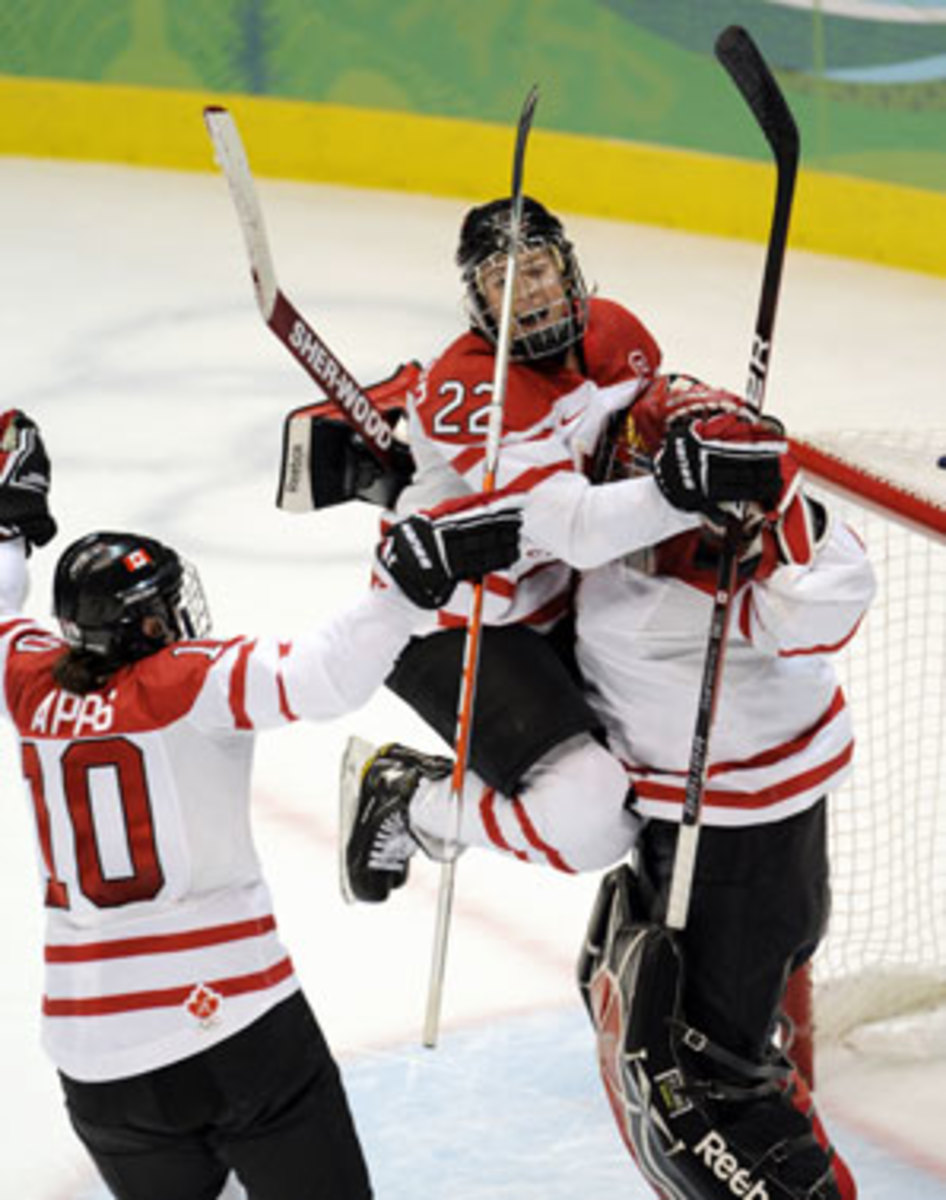When it comes to women's Olympic sports IOC just doesn't get it
Ah, Olympic tradition. Tears. Cheers. And the International Olympic Committee looking foolish.
Just like clockwork last week, IOC president Jacques Rogge went wading into the gender equity pool at these Olympics and found himself stuck in the weeds.
He chose the morning of the women's gold medal hockey game to threaten the sport's very Olympic existence.
"We cannot continue without improvement," Rogge warned ominously. And having witnessed what happened to softball on his watch, we had to shudder at his wording.
Rogge's problem with women's hockey is that two teams are too good. Because the North American teams dominated the competition, Rogge said the sport has four to eight more years to build depth.
Oh, that's fair. Women's hockey was first introduced in the Olympics in 1998, just four Olympic cycles ago. That means Rogge wants the women's game to have spread far and wide in 20 years or -- sorry -- into the dumpster
In the first 36 years of Olympic competition, the Canadian men won every gold medal save one. But no one abolished the sport. By Rogge's reasoning, cross-country skiing could never survive as an Olympic sport since Norway, Sweden and Finland (which would all be one country save for a few tectonic and glacial events) have dominated the Olympic competition since its inception in 1924.
Four-time Olympian Angela Ruggiero, recently elected by her peers to the IOC's athletes' commission, sees the disparity.
"Just giving our sport more time to develop is the important thing," she said. "A lot of sports have had that opportunity. Certainly on the men's side there was a long growth period from the '20s and the '30s to what you're seeing now and how competitive that sport is right now."
The IOC has a very clear set of rules on gender equity. Except when it doesn't.
Almost 20 years ago, the IOC announced that all future sports must be open to both genders. But there are plenty of loopholes to the apparent push for equality.
Because existing sports were exempt from the rule, the Olympic Lords rejected the inclusion of women's ski jumping, which is now the lone male-only sport in the Olympics. The IOC's rationale was that not enough women in enough countries ski jump, yet they embraced ski cross -- a sport that has fewer participants.
The ski jumpers unsuccessfully sued for inclusion. In a documentary on ski jumping made by UC Berkeley journalism student Anna Bloom, IOC member Dick Pound exhibited the heavy-handed threatening demeanor of the IOC.
"We'll have to wait and see," Pound said when asked if the sport might be approved in 2014. "If in the meantime, you're making all kinds of allegations about the IOC and how it's discriminating on the basis of gender. The IOC may say, 'Oh yeah, I remember them. They're the ones that embarrassed us and caused us a lot of trouble in Vancouver. Maybe they should wait another four years or eight years.'"
That's how the male-centric organization operates? We'll show those uppity gals? Maybe that's what happens when just 17 percent of your members are women and you include just one female on the executive board.
Hopefully Ruggiero will have a voice to fight for her sport. She can point out to the IOC that -- by their own decree -- if they get rid of women's hockey, they'll have to get rid of men's too. That'll go over well. She can explain that parity won't happen without the international federation requiring that countries put more money into their women's programs (the hockey federation is another overwhelmingly male body). That operating without a full blown professional league is a decided disadvantage.
And perhaps Ruggiero can also explain a basic fundamental to her new colleagues. What the IOC doesn't seem to get is that the Olympic Games are the absolutely biggest thing available to most women athletes. It is their Super Bowl, their World Series and their Stanley Cup combined.
That's why the Canadian women's hockey players came back out on the ice an hour after winning the gold medal, trotting out the traditional accessories of sports celebration: cigars, champagne bottles and a few beers.
They're never going to lift the Stanley Cup over their heads, never going to sip out of it. But the Olympics gave them something close.
And wouldn't you know, when the IOC executive director learned of the celebration he huffed that it was inappropriate and wanted to launch an investigation. What a foolish reaction.
But what else would you expect?






